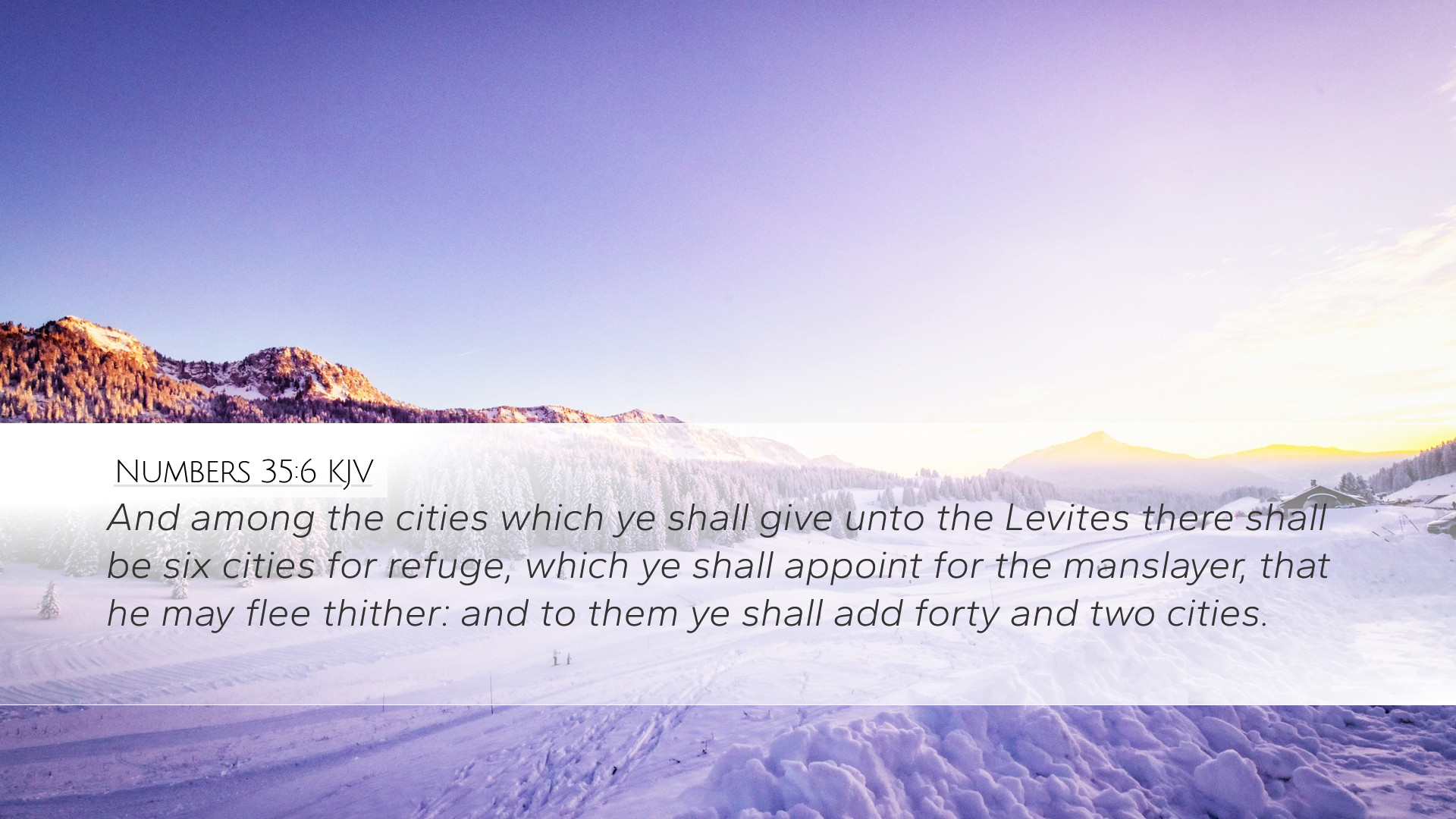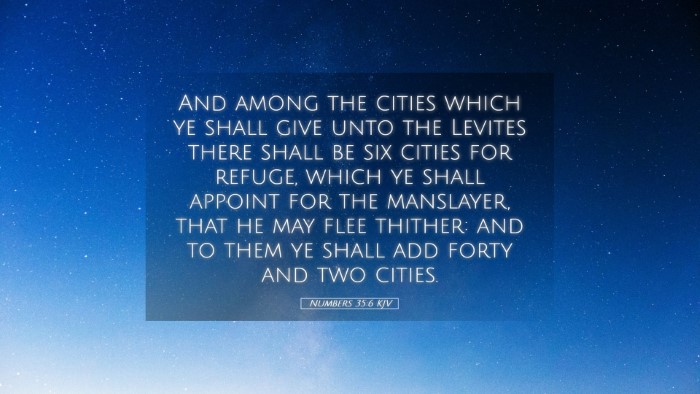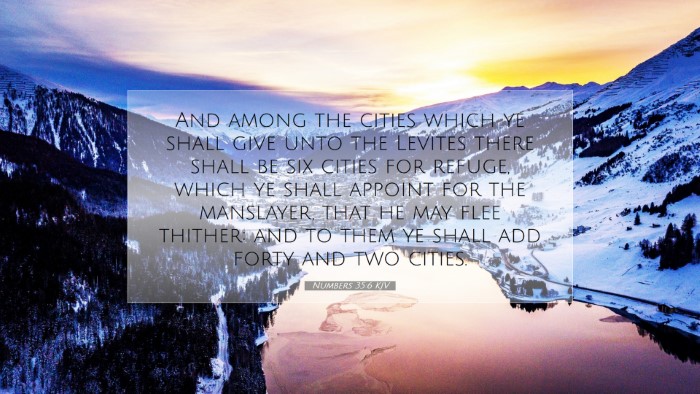Commentary on Numbers 35:6
Numbers 35:6 states: "And among the cities which ye shall give unto the Levites there shall be six cities for refuge, which ye shall appoint for the manslayer, that he may flee thither: and to them ye shall add forty and two cities."
Introductory Overview
This passage is part of the Israelites’ laws as they prepare to enter the Promised Land. The allocation of cities to the Levites and the establishment of cities of refuge is significant for understanding divine justice and mercy within Israel’s legal and societal framework.
Contextual Background
The Levites were separated from the other tribes to serve spiritual and priestly functions. God instructed that they be given cities to dwell in, and this included specific cities of refuge wherein those who committed unintentional manslaughter could seek asylum. This was crucial for ensuring the proper administration of justice without allowing vengeance to overwhelm societal order.
Insights from Key Commentaries
Matthew Henry's Commentary
Matthew Henry emphasizes the mercy of God in allowing cities of refuge as places for the unintentional manslayer to escape the avenger of blood. He highlights that it reflects God's concern for justice tempered with compassion. Whether discussing the necessity of justice in society or invoking the principles of inadvertent wrongdoing, Henry points out that these cities symbolize grace and refuge not only for the body but for the soul, prefiguring Christ as the ultimate refuge.
Albert Barnes' Notes on the Bible
Albert Barnes provides additional clarity on the purpose behind the cities of refuge. He notes that the provision for these cities serves to distinguish between accidental homicide and murder, reinforcing the legal structures of Israelite society. Barnes explains that the Levites' cities underscore the integration of spirituality and social justice, reminding readers that God's laws are not arbitrary but designed for the harmonious functioning of human relations within the framework of divine holiness.
Adam Clarke's Commentary
Adam Clarke elaborates on the significance of the number of cities. He mentions that the division of cities into the six cities of refuge and the rest allocated to the Levites reflects meticulous divine planning aimed at ensuring accessibility for those seeking refuge. Clarke also notes that the concept of sanctuary is a recurring theme throughout the Bible, culminating in the ultimate sanctum found in Christ, whereby all can find refuge from sin, just as the manslayer found refuge from judgment.
Theological Implications
The theological implications of Numbers 35:6 are profound. The cities of refuge not only served a practical purpose in ancient Hebrew society but also prefigure New Testament themes of salvation and refuge in Christ. The careful distinction between murder and manslaughter reflects God’s justice and His understanding of human frailty.
Justice and Mercy
These concepts are intertwined in the character of God. The provision of refuge illustrates God's desire to protect the innocent while providing a fair trial process. This balance is foundational to Christian theology, where justice is tempered by grace.
Significance of the Levites
In assigning cities to the Levites, the passage symbolizes the role of the church in society. Just as the Levites were tasked with spiritual oversight and teaching, so too are contemporary leaders called to be agents of justice, mercy, and truth, leading their communities to understand the nature of God’s laws.
Applications for Ministry
This passage provides valuable insights for pastors and church leaders in understanding how to apply biblical principles of justice and mercy in their ministries. Emphasizing God's refuge can encourage believers to approach Him with their fears and failures, fostering an environment of acceptance and healing within congregational life.
Encouragement in Troubles
For those in distress or facing judgment, the cities of refuge serve as a metaphor for the comfort found in Christ. Ministers can use this theme to remind their congregations of the grace available through faith, encouraging them to flee to Christ in times of trouble.
Teaching Opportunities
Educators and theologians can explore the implications of divine justice in their teachings, using the cities of refuge as a case study illustrating God's balance of justice and mercy. It can lead to discussions about the nature of sin, repentance, and the protective grace of God throughout both Testaments.
Conclusion
In conclusion, Numbers 35:6 is a rich verse that encapsulates key biblical themes concerning justice, mercy, and refuge. Through the insights gleaned from respected commentaries, church leaders and students of the Word can appreciate the ongoing relevance of these ancient laws in shaping today’s understanding of God’s character and His call to His people.


